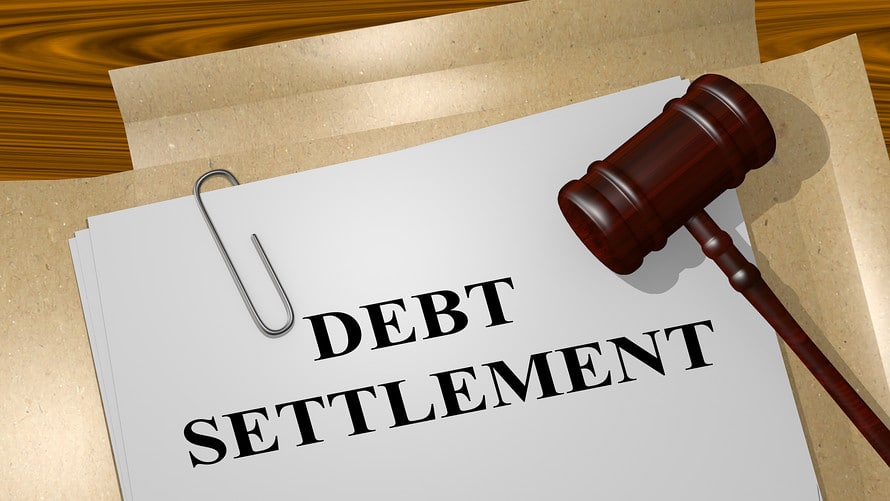Rewrite this article:
 Debt settlement, also known as debt negotiation or debt arbitration, is a process where a creditor agrees to reduce the total amount of debt owed and in return the borrower pays the remainder in a lump sum.
Debt settlement, also known as debt negotiation or debt arbitration, is a process where a creditor agrees to reduce the total amount of debt owed and in return the borrower pays the remainder in a lump sum.
This usually involves the creditor waiving interest and fees on the debt. Debt settlement can benefit both parties because it allows the creditor to recover some of the debt owed, rather than losing it altogether. For the borrower, it offers financial relief and possibly an alternative to filing for bankruptcy.
How does debt settlement work?
Debt settlement can be done through a debt settlement company or by the consumer himself (DIY). Typically, this involves negotiating with credit card issuers to reduce the total amount of debt owed, although it is also possible to resolve other types of unsecured debt.
When considering using a debt settlement company, it is important to proceed with caution as there are risks involved. It is crucial to research the company thoroughly before making any deals.
In addition, it is essential to examine your finances and keep up to date with the payment schedule and all associated costs and fees. Being knowledgeable and careful can help protect you against potential downsides in the debt settlement process.
That being said, there is a good side and a bad side to debt settlement, as shown below.
Benefits of Debt Settlement
Alternative to filing for bankruptcy
When considering options for managing crippling debt, many borrowers choose between debt settlement and filing for bankruptcy. Although it can have a negative impact on a borrower’s financial situation, some experts consider debt settlement to be a better alternative to Chapter 7 or Chapter 13 bankruptcy.
Debt settlement and bankruptcy will remain on the borrower’s credit report for several years (usually 7-10 years). However, bankruptcy can have a more serious impact on a borrower’s creditworthiness, as you may need to indicate whether you have declared bankruptcy when applying for credit cards, loans, and even jobs..
Relief from crippling debt
If you’re struggling with crippling debt, finding a solution that allows you to settle for less than you owe can be a big relief. Debt settlement can be a relatively quick option compared to other debt management options such as debt consolidation, credit counseling programs, or bankruptcy.
The debt will not be sent to a debt collection agency
When debt is sent to a collection agency, it can lead to endless calls and letters, which can be stressful and overwhelming for borrowers. By settling the debt directly with the creditor, borrowers can avoid having to deal with debt collection agencies and the associated stress.
It is important to note that if it has already been sent to a collection agency, debt settlement may not be an option.
Disadvantages of Debt Settlement
Debt settlement fees
While the Debt Settlement Consumer Protection Act prohibits debt settlement providers from charging most other fees, you may incur fees in the form of registration fees, monthly maintenance fees, and fees based on the amount of debt settled.
The fees can be relatively high and can counteract some of the benefits of debt settlement. With the additional costs, it’s possible to end up paying more than you originally had to.
The creditor is not obliged to accept the settlement of the debt
Creditors can choose to reject the offer and continue to find the full amount of debt. Additionally, debt settlement companies may not be able to negotiate settlement for all of a borrower’s debts, which means that some debts may remain unpaid.
Tax implications
When a borrower settles a debt for an amount less than the total amount due, the creditor is required to declare the forgiven debt to the IRS as income. The borrower may be required to pay taxes on the canceled debt depending on its amount.
Impact on your credit report
When a borrower settles a debt for less than the total amount owed, the creditor may report the settlement to the credit bureaus as “paid-settled”, which voids the original full payment agreement. This information will then appear on the borrower’s credit report for up to seven years and may discourage potential borrowers.
Takeaway meals
Debt settlement is one of the channels you can use to manage your debt. While this may be a good option if you are in financial difficulty, it is advisable to consider every aspect of the process to ensure the benefits outweigh the risks.
Source link







